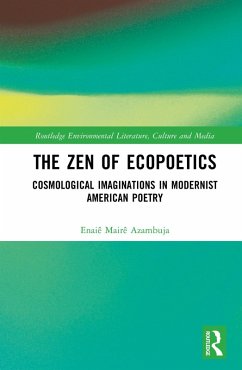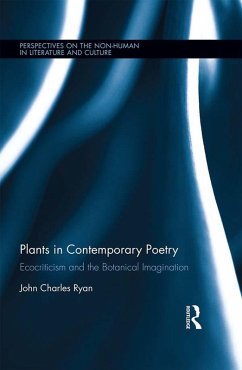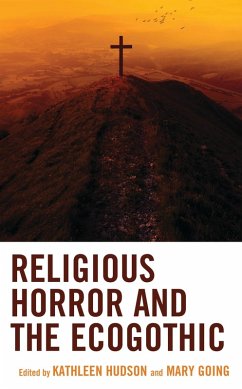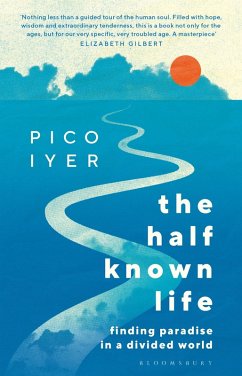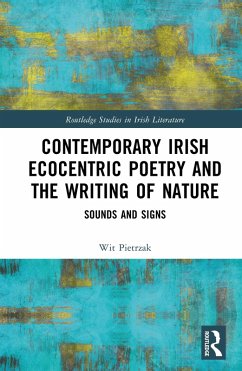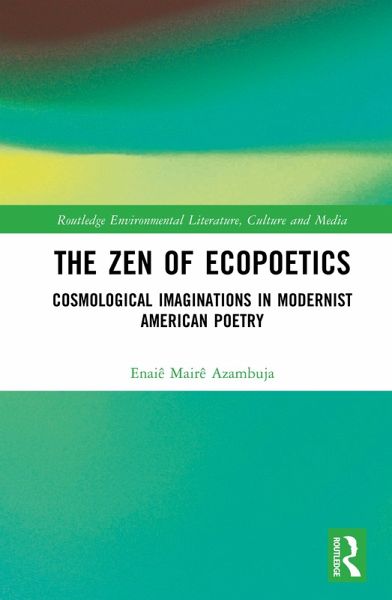
The Zen of Ecopoetics (eBook, PDF)
Cosmological Imaginations in Modernist American Poetry
Versandkostenfrei!
Sofort per Download lieferbar
42,95 €
inkl. MwSt.
Weitere Ausgaben:

PAYBACK Punkte
21 °P sammeln!
This book is the first comprehensive study investigating the cultural affinities and resonances of Zen in early twentieth-century American poetry and its contribution to current definitions of ecopoetics, focusing on four key poets: William Carlos Williams, Marianne Moore, Wallace Stevens, and E.E. Cummings.Bringing together a range of texts and perspectives and using an interdisciplinary approach that draws on Eastern and Western philosophies, including Zen and Taoism, posthumanism and new materialism, this book adds to and extends the field of ecocriticism into new debates. Its broad approac...
This book is the first comprehensive study investigating the cultural affinities and resonances of Zen in early twentieth-century American poetry and its contribution to current definitions of ecopoetics, focusing on four key poets: William Carlos Williams, Marianne Moore, Wallace Stevens, and E.E. Cummings.
Bringing together a range of texts and perspectives and using an interdisciplinary approach that draws on Eastern and Western philosophies, including Zen and Taoism, posthumanism and new materialism, this book adds to and extends the field of ecocriticism into new debates. Its broad approach, informed by literary studies, ecocriticism, and religious studies, proposes the expansion of ecopoetics to include the relationship between poetic materiality and spirituality. It develops 'cosmopoetics' as a new literary-theoretical concept of the poetic imagination as a contemplative means to achieving a deeper understanding of the human interdependence with the non-human.
Addressing the critical gap between materialism and spirituality in modernist American poetry, The Zen of Ecopoetics promotes new forms of awareness and understanding about our relationship with non-human beings and environments. It will be of interest to scholars, researchers, and students in ecocriticism, literary theory, poetry, and religious studies.
Bringing together a range of texts and perspectives and using an interdisciplinary approach that draws on Eastern and Western philosophies, including Zen and Taoism, posthumanism and new materialism, this book adds to and extends the field of ecocriticism into new debates. Its broad approach, informed by literary studies, ecocriticism, and religious studies, proposes the expansion of ecopoetics to include the relationship between poetic materiality and spirituality. It develops 'cosmopoetics' as a new literary-theoretical concept of the poetic imagination as a contemplative means to achieving a deeper understanding of the human interdependence with the non-human.
Addressing the critical gap between materialism and spirituality in modernist American poetry, The Zen of Ecopoetics promotes new forms of awareness and understanding about our relationship with non-human beings and environments. It will be of interest to scholars, researchers, and students in ecocriticism, literary theory, poetry, and religious studies.
Dieser Download kann aus rechtlichen Gründen nur mit Rechnungsadresse in A, B, BG, CY, CZ, D, DK, EW, E, FIN, F, GR, HR, H, IRL, I, LT, L, LR, M, NL, PL, P, R, S, SLO, SK ausgeliefert werden.




